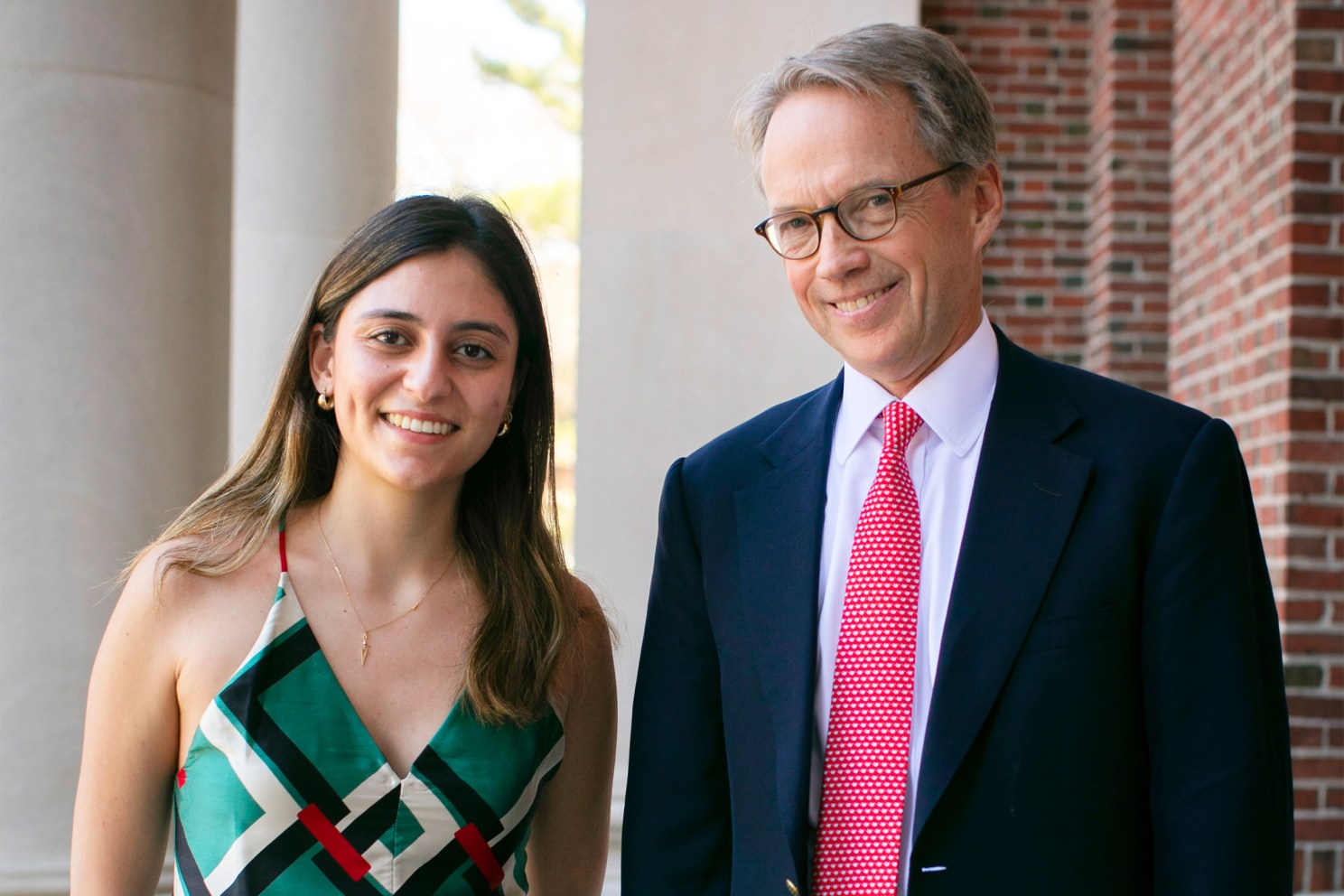New frontiers for Harvard graduate students

The first recipient of a Harvard Frontier Fellowship Nazli Ugur Koyluoglu with Hartley Rogers. Stephanie Mitchell/Harvard Staff Photographer
Curiosity drives Nazli Ugur Koyluoglu.
Koyluoglu, an inaugural member of Harvard’s Ph.D. program in quantum science and engineering who works at the intersection of quantum information and many-body physics, has been named the first recipient of a Harvard Frontier Fellowship, funded through a generous gift from Hartley Rogers ’81, M.B.A. ’85 and Amy Falls, M.P.P. ’89.
“These fields are ever growing and ever intertwining, to show us new ways of thinking about quantum physics and applications,” Koyluoglu said. “It’s an exploratory field where I can think about exciting questions that contribute to advancing quantum science and technologies.”
As one of several theorists in the Lukin Group, Koyluoglu works closely with a team of experimentalists. Their theoretical research supports the development of quantum simulators and computers, identifies new physics phenomena, and advances information applications.
Through Frontier Fellowships, the Harvard Kenneth C. Griffin Graduate School of Arts and Sciences can support exceptional scholars across all disciplines and help train fellows like Koyluoglu in new fields of study.
“Hartley Rogers and Amy Falls’ gift allows students to push the very boundaries of knowledge and have significant impact on society’s most challenging problems,” said Emma Dench, dean of Harvard Griffin GSAS and McLean Professor of Ancient and Modern History and of the Classics.
Koyluoglu hopes to discover new frontiers within Harvard’s quantum community. She also plans to continue advocacy work she began as a Stanford undergraduate, making quantum and physics more accessible, equitable, and approachable in her native Turkey and for women and minority groups everywhere.
“Tremendously grateful” for the impact Harvard has had on him and his family, Rogers named the first of the Rogers Family Fellowships in honor of his mother, Adrianne E. Rogers ’54, M.D. ’58. In addition to funding the Frontier Fellowship, the family’s recent commitment of $20 million will bolster Harvard Kennedy School fellowships, endow graduate dissertation research, and provide support for the Office for the Vice Provost for Advances in Learning. Their generosity was inspired by the vision of Harvard President Larry Bacow and Edgerley Family Dean of the Faculty of Arts and Sciences Claudine Gay, now Harvard president-elect.
“Graduate students are the lifeblood of Harvard,” Rogers said. “They’re heavily involved in undergraduate education, in research, in the future. Harvard needs to be able to support them financially to remain competitive with other universities.”
“In the School’s sesquicentennial year,” added Dench, “it is wonderful to see a gift that embodies our anniversary themes of inquiry, innovation, and impact and highlights the importance of the work our students do, which is so central to the University’s research mission.”
Rogers hopes others will join him with critical support.
“Quantum physics deals with the infinitesimally small, but the potential of these fellowship recipients is enormous,” he said. “By helping graduate students on their academic journeys, we have the opportunity not just to support Harvard, but to benefit the wider world.”




